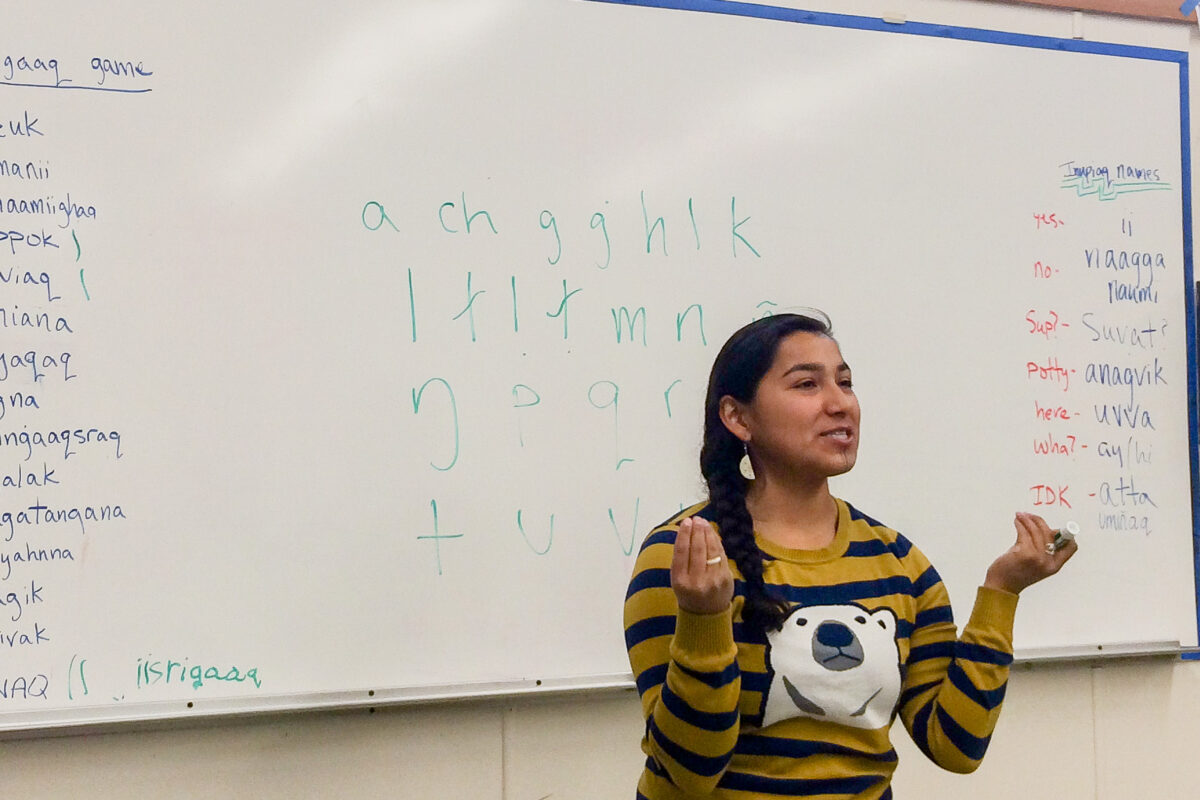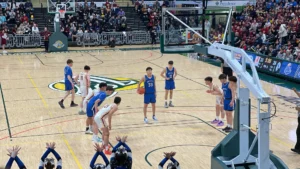Bilingual schools for early child learning have long been a priority of those pushing for Alaska Native language revitalization. As debates over public education funding rage across the state, privately-funded learning initiatives — such as an Iñupiaq immersion school in Nome — push forward with their plans.
Hattie Keller, whose Iñupiaq name is Iviilik, has spent the last three years fundraising for the Nome Iñupiaq Classroom at the Nome Elementary School. Last month, after she gave a presentation at the Sitnasuak Native Corporation’s (SNC) 45th annual meeting, Keller received a generous grant from SNC.
“We were finally able to hire two personnel: Marjorie Tahbone and Madeline Alvanna Stimpfle, so we actually have the Inupiaq classroom in 2020-2021.”
One of the two teachers, Madeline Alvanna-Stimpfle, also recently became the first recipient of the “Growing Our Own Teachers Student Loan Repayment Program,” a grant funded by the Norton Sound Economic Development Corporation.
The program repays up to $20,000 of a qualifying resident’s student loans incurred in the pursuit of their degree and certification required to teach in our region’s public schools.
Acquiring funding in a timely fashion for Native language revitalization is particularly important.
Tattauq Josie Bourdon retired last year from Nome Public Schools after three decades in teaching. She thinks that rural Alaska is at a critical juncture with respect to language revitalization, as generations with many Inupiaq speakers are getting older.
“It’s a necessity to learn it now, to preserve it now… because many of the elders who are fluent speakers are passing on.…”
Keller sees language revitalization as a bridge connecting the current generation with the community’s cultural history. To strengthen this connection, she hopes to invite elders into the classroom.
“We will be getting an Arctic Initiative Fund; we will be able pay elders and speakers a stipend, making sure we really figure out how to connect all our community members.”
She also believes the program will have a positive impact on the socio-economic discrepancies prevalent within the Nome community.
“When our children learn our language, their attendance in school goes up, but also what happens is their risk of alcoholism, or recidivism, or suicide, all these negative impacts that we have on our community… they go down.”
According to Keller, the only steps remaining for the Immersion Classroom are setting a curriculum, gathering classroom materials, and working with elders of the community.
The Iñupiaq Immersion Classroom will be incorporated into Nome Elementary School and will officially launch in the 2020 school year.
Image at top: Marjorie Tahbone teaches Inupiaq in a Nome classroom, circa 2014. Photo: KNOM file.
Correction: an earlier version of this story misspelled the Iñupiaq name of Hattie Keller. The spelling of “Iviilik” has been corrected.




